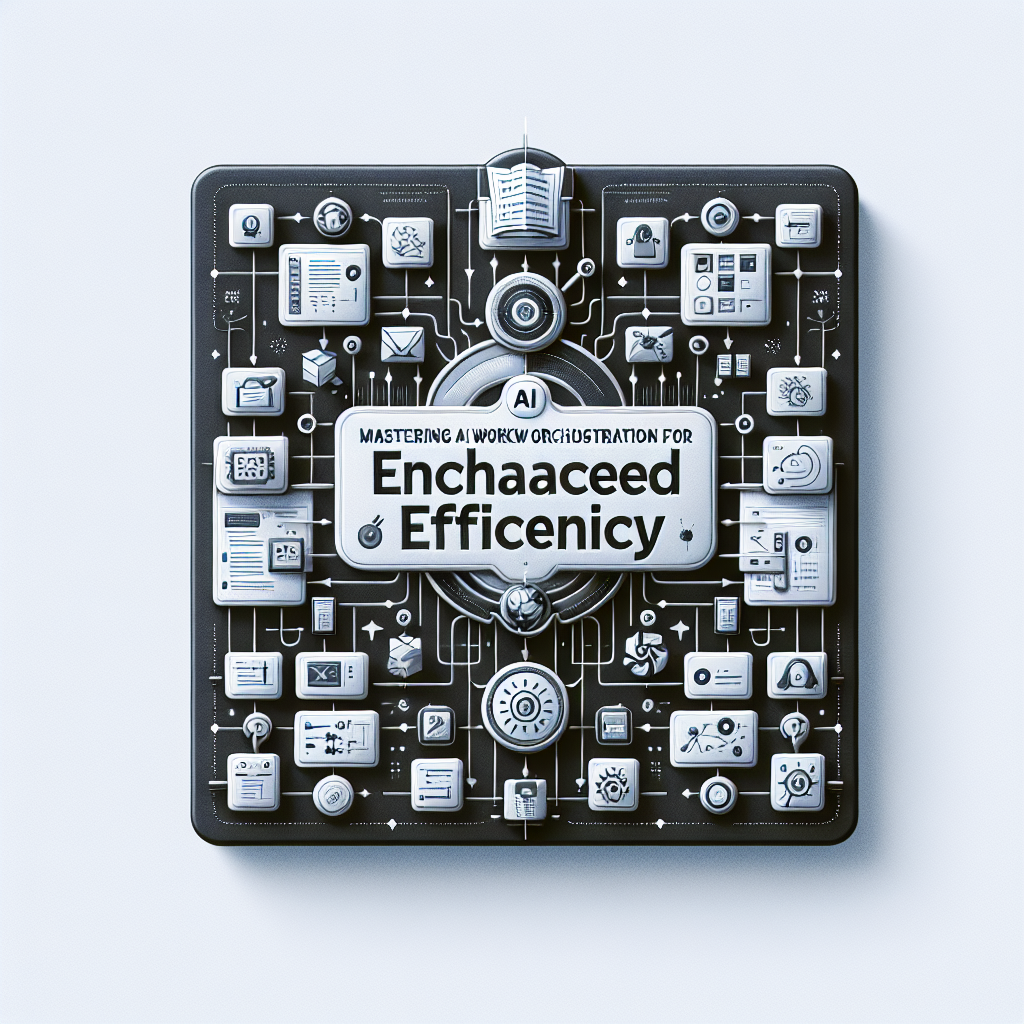Mastering AI Workflow Orchestration for Enhanced Efficiency
Introduction
In today’s fast-paced business environment, the need for efficient operations has never been more critical. AI workflow orchestration emerges as a game changer, enabling organizations to streamline processes and enhance productivity. This article delves into the intricacies of AI workflow orchestration, its benefits, and how it can be implemented effectively.
Understanding AI Workflow Orchestration
Definition and Key Components
AI workflow orchestration refers to the coordination of various AI tools and processes to automate tasks and improve overall efficiency. The key components include:
- Data management systems
- AI models and algorithms
- Integration platforms
- Monitoring tools
How it Differs from Traditional Workflow Management
Traditional workflow management often relies on manual processes, whereas AI workflow orchestration integrates automation and machine learning to optimize workflows. This allows for real-time adjustments and data-driven decision-making.
Benefits of AI Workflow Orchestration
Increased Productivity
By automating repetitive tasks, businesses can free up valuable time for employees to focus on higher-level strategic initiatives, ultimately resulting in increased productivity.
Cost Savings
AI workflow orchestration reduces operational costs by minimizing errors and enhancing process efficiency, leading to significant savings in both time and resources.
Improved Accuracy and Consistency
With automation, the likelihood of human error is significantly reduced, ensuring more consistent outcomes and improved accuracy in task execution.
Key Technologies Behind AI Workflow Orchestration
Machine Learning Algorithms
Machine learning algorithms are at the core of AI workflow orchestration, enabling systems to learn from data and make informed decisions autonomously.
Automation Tools
Automation tools facilitate the execution of repetitive tasks without human intervention, streamlining processes across departments.
Integration Platforms
Integration platforms connect different systems and applications, ensuring a seamless flow of information and enhancing collaboration across workflows.
Implementing AI Workflow Orchestration
Steps for Successful Implementation
- Identify critical workflows that can benefit from automation
- Choose appropriate AI tools and technologies
- Integrate systems for smooth data communication
- Monitor performance and adjust workflows as necessary
Common Challenges and Solutions
Implementing AI workflow orchestration can present challenges, including resistance to change and integration hurdles. Addressing these issues through training and effective change management strategies is essential for successful adoption.
Case Studies
Real-World Examples of Successful Implementations
Companies across various industries have successfully leveraged AI workflow orchestration to optimize their operations. For instance, a healthcare provider used AI to streamline patient data processing, resulting in faster patient care and improved service delivery.
Lessons Learned from Failures
Not all implementations are successful. Understanding the pitfalls, such as inadequate planning or poor tool selection, can provide valuable lessons for future projects. Incorporating insights from failures can inform better strategies and enhance future implementations.
Future Trends in AI Workflow Orchestration
Emerging Technologies
The landscape of AI workflow orchestration is continuously evolving. Emerging technologies, such as improved natural language processing and advanced robotics, promise to enhance the capabilities of workflow automation.
Predictions for the Next Five Years
In the coming years, we can expect to see further integration of AI with cloud services, leading to more scalable AI solutions that can adapt to changing business needs.
Conclusion
AI workflow orchestration is a powerful tool for enhancing efficiency in business processes. By understanding its components and benefits, organizations can leverage this technology to drive productivity and achieve cost savings. As the landscape evolves, staying informed about the latest trends will be crucial for maintaining a competitive edge.
FAQ
What is AI workflow orchestration?
AI workflow orchestration is the process of coordinating various AI tools and processes to automate tasks and optimize business workflows.
How can AI improve workflow efficiency?
AI improves workflow efficiency by automating repetitive tasks, reducing errors, and enabling real-time decision-making based on data insights.
What tools are best for workflow orchestration?
The best tools for workflow orchestration depend on specific business needs, but popular options include automation platforms, machine learning frameworks, and integration services.




